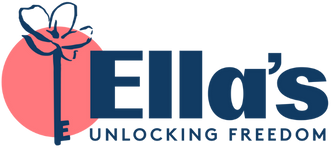The issue
Ella’s works with survivors of trafficking and exploitation.
The scale of these crimes is huge, with women and girls most affected. The impact on people’s lives is devastating.
Trafficking
Human trafficking is a type of modern slavery. It’s when people are forced or manipulated into working for the profit of others, often in abusive situations.
A more in depth description of trafficking is: the use of violence, threats or coercion to transport, recruit or hold people captive in order to exploit them for purposes such as forced prostitution, labour and servitude, crime or marriage.
49.6 million people around the world are trapped in modern slavery
79% of people trafficked are women and children
6.3 million people are being exploited in the sex trade
At Ella’s, the majority of the people we work with are women who are survivors of trafficking. Most have been in the sex trade, others held in different types of forced labour. The majority have experienced multiple types of abuse and violence.
Each of the women we work with has a different story. But something they all share is that their lives, and their mental and physical health, have been hugely impacted by the cruelty and injustice that they’ve been through.
Ella’s exists to provide survivors with the care and support they need to recover from these experiences and move forward.
Meeting an urgent need
Even when people who have been trafficked break away from abusive situations, they are not out of danger.
The Government has a system called the National Referral Mechanism (NRM), which provides short-term help for people who escape or are rescued from modern slavery while their case is being looked at. But there is a significant lack of the intensive, long-term support people need to stay safe and recover fully.
For survivors, this lack of support can be devastating. Many have been abused since childhood, and have deep-rooted mental health conditions such as complex post-traumatic stress disorder. Some have been controlled by others for so long that they don’t have the confidence to make even simple decisions. The majority have not had the opportunities to learn skills to get a safe job, don’t speak English and lack the resources to find somewhere safe to live.
Without the right support in these early months and years of freedom, survivors can be pushed into poverty and back into danger. Ella’s provides support for the most traumatised survivors of trafficking and exploitation, when they need it most.
‘The lack of specialist support for human trafficking survivors, let alone accommodation and work opportunities, is a huge challenge in our sector. Without long-term support, finance or housing, many survivors risk falling into destitution or even being re-trafficked. This is why services like Ella's are so vital to ensuring survivors have a genuine chance to fully recover. We are grateful to have Ella’s in London.’
- Tamara Barnett, Human Trafficking Foundation
Other types of abuse and exploitation
The majority of women we work with at Ella’s are survivors of trafficking. However, we also work with women who have not been trafficked, but have suffered serious violence and exploitation. All of the women we work with have been abused and exploited in a number of different ways during their lives. Each of their stories are unique, and often complex.
These other types of abuse and exploitation include:
child sexual exploitation
honour-based violence
domestic abuse
female genital mutilation (FGM)
forced marriage
Ella’s provides safe housing and long-term care for the most traumatised survivors of trafficking and exploitation, when they need it most.
“When you survive sexual exploitation, your scars never leave you. You have to learn to live life with the trauma.”
Growing need
Modern slavery is a growing crime. More than 19,000 people were referred to the UK authorities as victims of modern slavery in 2024, the highest number since the NRM began and a 13 per cent increase on the previous year. One in every five women in the UK will experience violence during her lifetime. Globally, this number rises to one in four. At Ella’s, we saw a 533 per cent increase in referrals in 2019.
Added to this, the coronavirus pandemic has resulted in higher levels of violence against women, but a decrease in funding opportunities and community services. This means there are more survivors competing for the limited help that is available.
The need for our work is greater than ever before.
You can find more information and statistics about these issues at the Human Trafficking Foundation, StopTheTraffik, UN Women and Unseen.
Statistics quoted on this page: ILO; IOM; Walk Free; Home Office.

